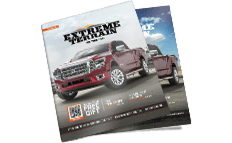Understanding Aftermarket Fuel System Parts for Nissan Titan
In the complex realm of aftermarket automotive parts, one evolving sector filled with numerous components is the fuel system for vehicles such as the Nissan Titan. It encompasses numerous integral parts, each designed with high precision and specific engineering details that contribute to your vehicle's overall performance, efficiency, and safety. To comprehend this system fully, close examination of its three main parts – the fuel tank, the fuel pump, and the fuel injectors - is imperative.
Fuel Tank
The fuel tank, typically composed of high-density polyethylene (HDPE), is a prime example of a part designed with careful consideration of factors such as operating conditions and corrosion resistance. For instance, by leveraging blow molding or rotational molding, automakers can manufacture oddly shaped fuel tanks that utilize the available space in the vehicle’s undercarriage optimally. Tanks built from HDPE resist the corrosive properties of ethanol-based fuels and resist punctures, important features in an off-road performer like the Titan.Fuel Pump
The fuel pump's role, majorly, is to pressurize the fuel system and transport gas from the tank to the engine's fuel injectors. Manufacturing processes usually involve precision machining for paramount accuracy. They are primarily made of hardy steel, and their compatibility with a vehicle mainly depends on fuel pressure specs and type of fuel being used. For example, older Titans' fuel pump might only be compatible with regular gasoline, while newer models may incorporate flex fuel capabilities, thus require a more advanced pump.Fuel Injectors
Fuel Injectors, meanwhile, finely atomize fuel for optimal combustion in the engine cylinders. They are usually manufactured from highly durable metals like high carbon steel using precision machining or electric discharge machining (EDM). Flow rate and the injector's impedance are crucial compatibility considerations for fuel injectors, which must be matched with the engine's requirements to prevent performance issues or even damage.Selecting Aftermarket Parts
When selecting these parts for your Nissan Titan, consider factors like the vehicle's age, mileage, operating conditions, and maintenance history. For instance, older vehicles might require replacement parts designed to handle lower fuel pressures and less aggressive operating conditions, while newer, higher-performance vehicles might demand parts designed to withstand high pressures and aggressive operating conditions.Concurrent Modifications
Apart from the primary subcategory of fuel systems, enthusiasts and mechanics often concurrently modify related product categories, such as the intake system, when working on a Nissan Titan's fuel system. Airflow enhancement parts like free-flow air filters and intake tubes can increase horsepower and torque by introducing more cool and clean air into your engine's combustion process. Aftermarket fuel system parts for the Nissan Titan must meet high-quality standards to ensure optimal performance, efficiency, and safety. A deep understanding of these parts, their materials, the manufacturing processes used, and their compatibility with your specific model is essential for accurately gauging their longevity and picking the ones that suit your vehicle’s requirements the best.Fitment Includes:
- 2004, 2005, 2006, 2007, 2008, 2009, 2010, 2011, 2012, 2013, 2014, 2015, 2017, 2018, 2019, 2020, 2021, 2022, 2023 and 2024 Nissan Titan
- LE, SE, XE, PRO-4X, S, SL, SV, Platinum Reserve
*Please see product pages for any exceptions.




